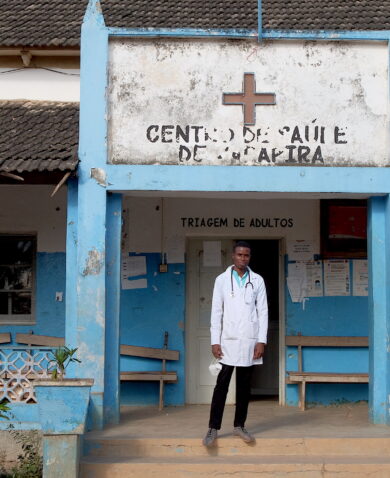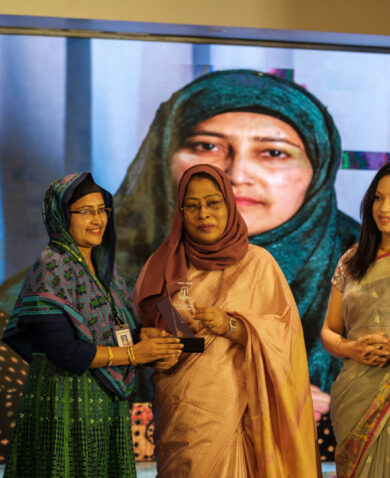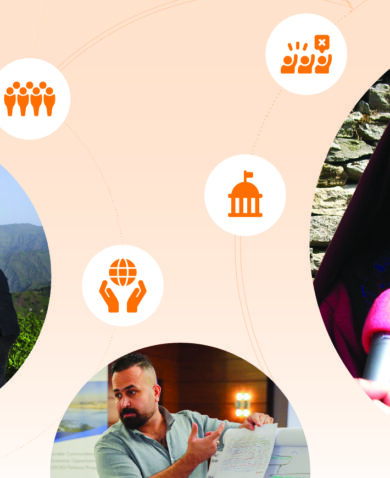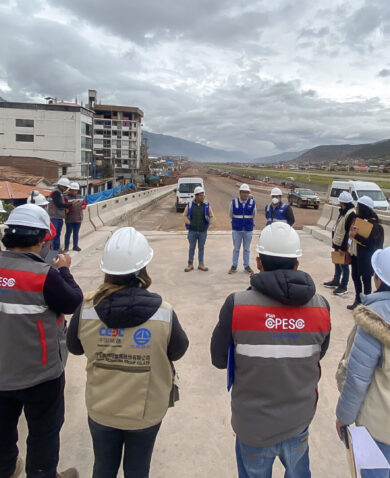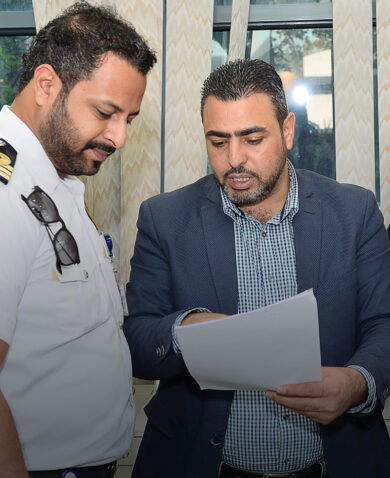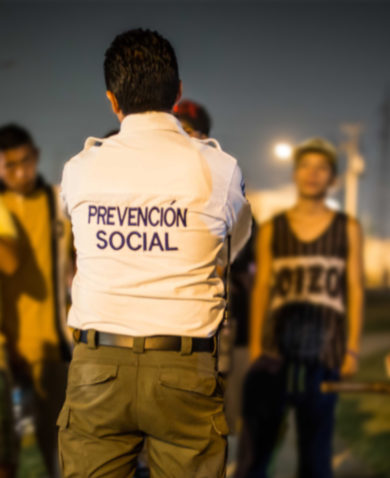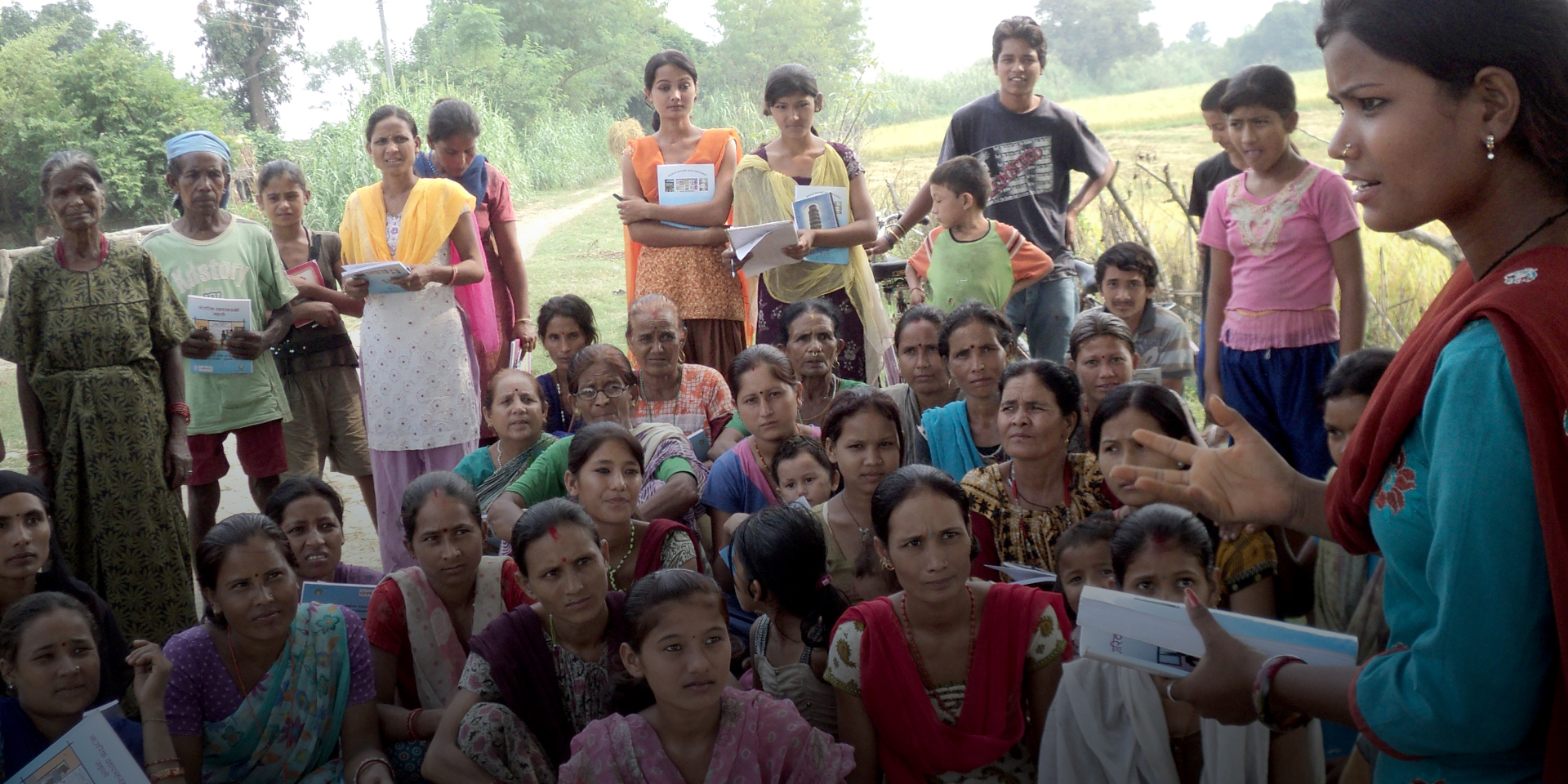
Four Lessons for Sri Lanka from Bangladesh’s Right to Information Experience
December 7, 2016 | 4 Minute ReadOver 100 countries have adopted right to information laws, creating an opportunity for countries that are newly implementing this legislation to learn from the experiences of others.
Access to information is a fundamental right. More than 100 countries worldwide have adopted right to information (RTI) legislation, which are laws regulating public access to information, particularly from public institutions (sometimes referred to as access to information or freedom of information laws). These countries are increasingly recognizing the connection between good governance, accountability, and freedom of information. Most recently, Sri Lanka joined the ranks of these countries, adopting an RTI bill in June 2016.
While many countries have faced long-fought struggles to adopting RTI laws in the first place, it is often afterward that the real work begins. Implementation of RTI laws requires political will, awareness, resources, and capacity. This can be slow going, as has been the case in Bangladesh, and takes support from government, civil society, and individual citizens, and collaboration across these groups to support implementation. Why does this matter? Without robust implementation, which requires the commitment and resources to building both demand for information and the capacity to supply it, RTI laws will fall short.
Despite adoption of the RTI Act in 2009 and a generally strong legal framework, Bangladesh struggles with widespread corruption and a culture of impunity. During a recent visit to Dhaka, many noted a continued optimism in the role that the RTI Act can play in promoting a culture of transparency and accountability in Bangladesh. However, seven years in, the slow progress in implementing the law leaves many frustrated and questioning if the law can still foster a culture of openness in the country.
Many look to India’s RTI experience as a model in the region and beyond. A grassroots movement spearheaded the adoption of India’s RTI Law more than ten years ago, which is one of the strongest laws globally. While India still faces implementation challenges, there is widespread awareness and use of the law, with an estimated 17.5 million RTI applications in the past decade, and approximately 4,800 per day.
As Sri Lanka embarks on implementation of its new RTI law and looks to India as a model, what lessons can it learn from Bangladesh? The challenges and the recent signs of progress, however tenuous, provide helpful considerations for Sri Lanka to start off on the right foot just after the passage of their RTI law.
1. Seek to transform the predominant culture of secrecy among information holders.
Government and civil society organizations (CSOs) are required to disclose information according to the law, as is the case in Sri Lanka, but are generally reluctant to share information. Penalties and sanctions can help, but need enforcement to be effective. In the first five years of Bangladesh’s RTI law, only two cases resulted in penalties, unlike India which enforces penalties for non-compliance. Ultimately, information is power, and it will take a mindset shift to transform gatekeepers into information providers. In Bangladesh, resistance ranges from capacity issues related to processes, systems, and resources, to less benign motives from those with a stake in maintaining the status quo. In India, the ease of RTI application submission, which does not require an explanation for the request and can be submitted by post card, has also spurred its use among the public.
2. Raise awareness and build capacity for both the public and information holders
In Bangladesh, information holders and the public are not aware of their rights and obligations in the RTI Act or the processes for information requests and appeals. According to the Information Commission, there are 24,700 designated information officers. This number is just over 50 percent of what should be in place, and even among them, there is frequent turnover and lack of capacity. Similarly, as of 2014, a mere 70,000 RTI requests have been made in a country of approximately 680 million, revealing the low level of public engagement with the RTI law. As one civil society representative mused, “RTI is like a shop full of fancy items without any customers.”
In both Bangladesh and Sri Lanka, and differing from the Indian case, the law was not a result of a grassroots movement. The public does not yet fully recognize the power of the law as a tool to ensuring that social services are effectively and transparently reaching the most vulnerable members of their community as intended. Thus, as is the case in Bangladesh, Sri Lanka will also need to make raising citizen awareness a critical first step, as well as ensuring that gender considerations are incorporated into awareness and capacity building efforts.
3. Link to accountability to create progress in implementation
Bangladesh civil society groups have actively supported the implementation of RTI by engaging oversight bodies, such as the Anti-Corruption Commission, Information Commission, and Comptroller and Auditor General, among others. As individuals and CSOs access information, there are greater opportunities for them to monitor government actions and services, and better use and engage with these oversight mechanisms. In India, a study showed that people who made RTI requests were able to get their ration card cases resolved as quickly as those who paid bribes. As Sri Lanka continues to strengthen its enforcement and oversight institutions, this can be key for establishing the flow of information and building trust. Seeing RTI as a tool for accountability, rather than the goal itself, can spur implementation progress.
4. Strengthen the information infrastructure.
Both Bangladesh and India are working to address challenges with records management and digitization with an increased focus on information and communication technology (ICT) and e-governance, through the Access to Information (A2i) initiative and National Informatics Center, respectively. Bangladesh has implemented more than 14,000 digital information centers at the local level, which provide centralized e-services for citizens. The centers are venues to promote access to information and receive RTI requests throughout the country. These types of initiatives working to strengthen the government’s information management system and digitize processes can play an important role in ensuring access to information becomes a reality. In Sri Lanka, working alongside of similar government priorities, such as the government’s open data initiative, and the extensive use of mobile phones throughout the country, can help facilitate implementation.
As Bangladesh and Sri Lanka make strides in implementing their respective RTI laws, one that is coming of age and the other still nascent, there is tremendous optimism that the law can be a catalyst for addressing corruption and strengthening governance, as has been the case in India.
As Sri Lanka embarks on this journey, it can learn many lessons from Bangladesh’s implementation experience.







